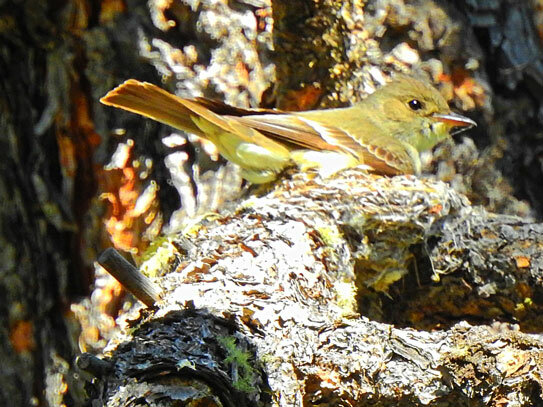
Photo courtesy Charles Martinez
This week’s Bird of the Week, compliments of the Weminuche Audubon Society and Audubon Rockies, is the western wood-pewee.
This is another member of the tyrant flycatcher family of birds that migrates here to spend the summer eating insects and raising babies. You won’t find this bird at your bird feeders, but if you live near open woodlands or a forest edge, they are sure to be around. Their preferred habitat has larger trees, open understories and standing dead trees.
The summer breeding range of the western wood-pewee divides the lower 48 states almost in half. The nearly identical eastern wood-pewee occupies the other half. Both of these wood-pewees migrate to northern South America for the winter.
The lack of an eye-ring and a peaked crown are physical features that help to distinguish this small, grayish bird from other similar tyrant flycatchers. Its recognizable call in spring and summer make identification positive.
The wood-pewee employs a sit-and-wait method of feeding while it watches for an insect to fly by. You can spot this bird, which perches upright, often on a bare branch, when it darts out to catch an insect and returns to the perch to eat it. Although it will also take insects from foliage, twigs and tall grass, flying insects are its primary food source.
The nest of the western wood-pewee is a compact, neat basket measuring about 3 inches across. The female spends anywhere from three to 14 days using her bill to weave grasses, plant fibers and other materials that are held together by spider webs. She shapes the nest by rotating her body around while pressing against the interior. She uses her bill and tail to press and strengthen the outside. The camouflaged nest is built on a horizontal branch away from the trunk and may look like just a knot or bump.
Partners in Flight classifies this bird as “a common bird in steep decline” due to losses in population numbers in recent years.
For information on events, visit www.weminucheaudubon.org and www.facebook.com/weminucheaudubon/.